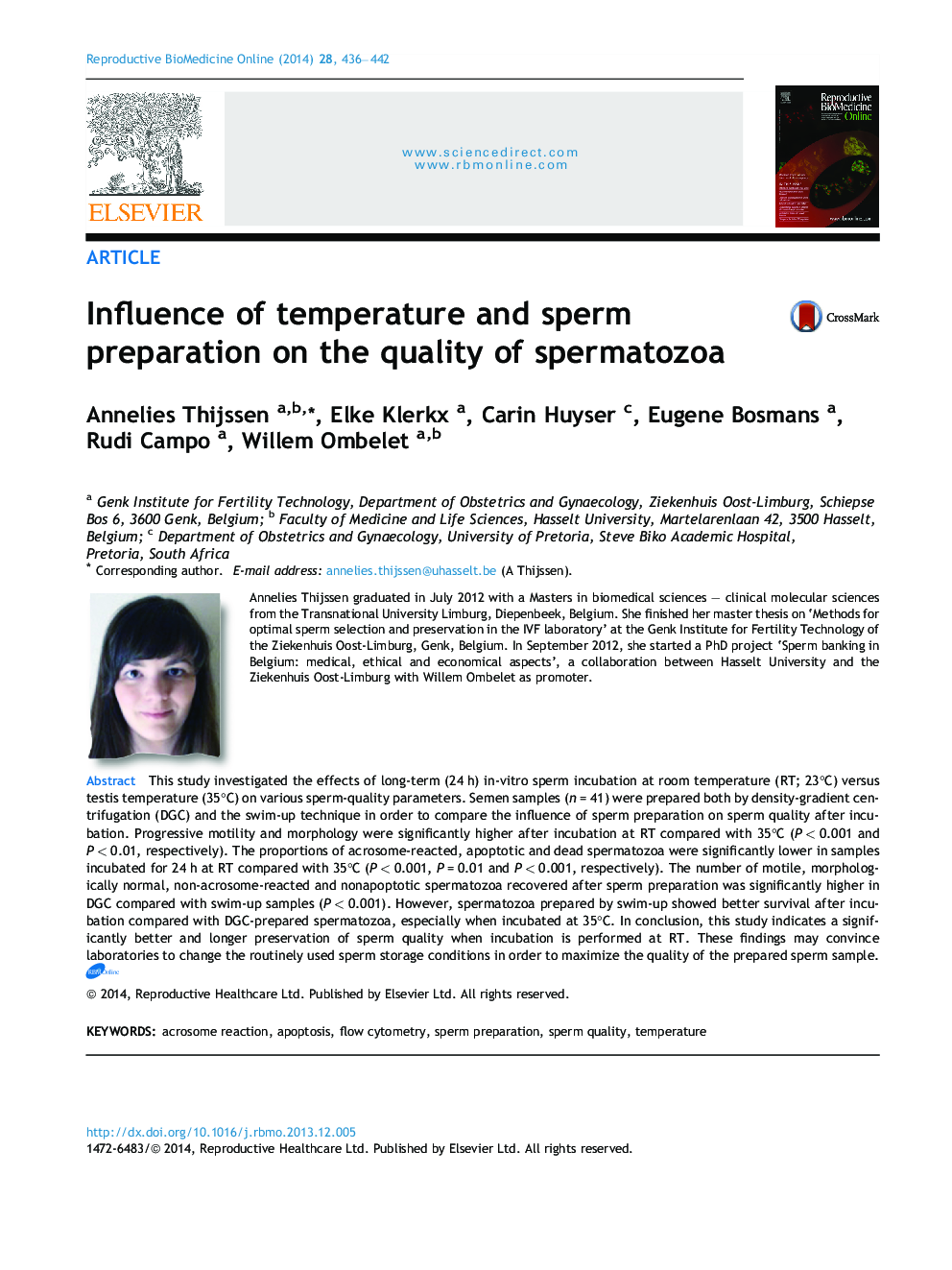| Article ID | Journal | Published Year | Pages | File Type |
|---|---|---|---|---|
| 3970196 | Reproductive BioMedicine Online | 2014 | 7 Pages |
This study investigated the effects of long-term (24 h) in-vitro sperm incubation at room temperature (RT; 23°C) versus testis temperature (35°C) on various sperm-quality parameters. Semen samples (n = 41) were prepared both by density-gradient centrifugation (DGC) and the swim-up technique in order to compare the influence of sperm preparation on sperm quality after incubation. Progressive motility and morphology were significantly higher after incubation at RT compared with 35°C (P < 0.001 and P < 0.01, respectively). The proportions of acrosome-reacted, apoptotic and dead spermatozoa were significantly lower in samples incubated for 24 h at RT compared with 35°C (P < 0.001, P = 0.01 and P < 0.001, respectively). The number of motile, morphologically normal, non-acrosome-reacted and nonapoptotic spermatozoa recovered after sperm preparation was significantly higher in DGC compared with swim-up samples (P < 0.001). However, spermatozoa prepared by swim-up showed better survival after incubation compared with DGC-prepared spermatozoa, especially when incubated at 35°C. In conclusion, this study indicates a significantly better and longer preservation of sperm quality when incubation is performed at RT. These findings may convince laboratories to change the routinely used sperm storage conditions in order to maximize the quality of the prepared sperm sample.A clinical study was performed in order to compare the influence of different sperm preparation techniques and incubation temperatures on the survival and quality of spermatozoa. A total of 41 semen samples were prepared with two different semen preparation techniques. One technique involved centrifugation of the sample through different gradient layers in order to select the most motile and morphologically normal spermatozoa. The other preparation technique relied on the sperm’s capability to swim out of the semen into a layer of culture medium: this way, only motile sperm cells were selected. Afterwards, aliquots of both sperm preparations were incubated for 24 h at room temperature (23°C) or testis temperature (35°C) in order to compare the influence of incubation temperature on the survival and quality of the spermatozoa. A total of six sperm-quality parameters were checked at different stages of sperm preparation and incubation. Conventional sperm-quality parameters like concentration, progressive motility, normal morphology and viability were taken into account. Additionally, sperm function was analysed by determining the percentage of spontaneously acrosome-reacted and apoptotic spermatozoa in the sample. In conclusion, our results showed a significantly better and longer preservation of sperm quality when incubation was at room temperature. The findings presented by this study may convince laboratories to change the routinely used sperm storage conditions in order to maximize the quality of the prepared sperm sample.
